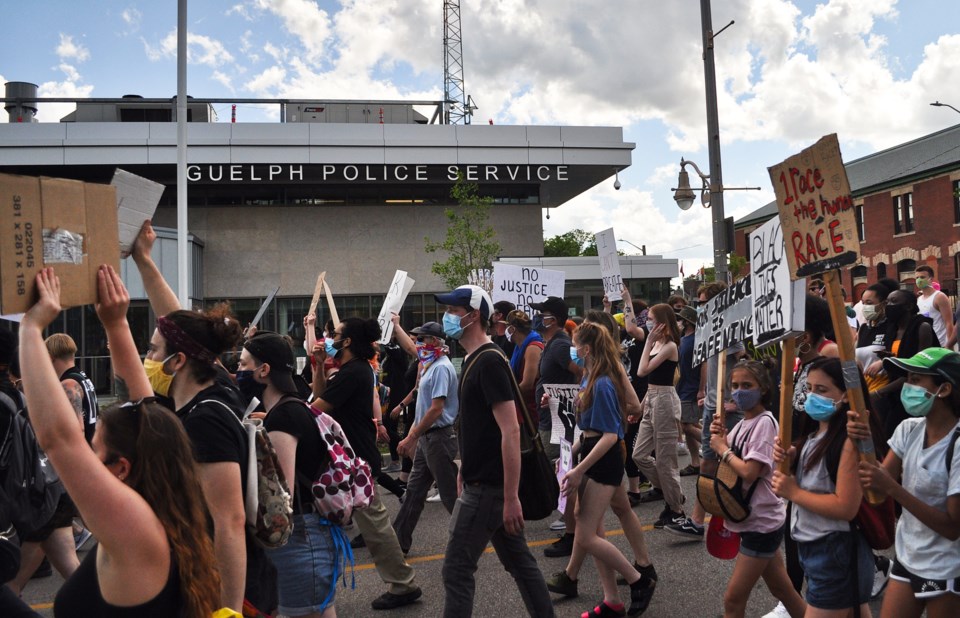Guelph's chief of police says any talk of defunding the police should happen only when funding is in place for the agencies that will replace the 24/7 service Guelph Police provides.
Chief Gord Cobey fielded a question about the defund the police movement during Tuesday's virtual Ward 1 town hall, in which Guelphites were invited to ask questions.
Councillor Dan Gibson, who was moderating the event, said he gave the chief a heads up that he would be asking the question during the meeting.
In response, Cobey said he is happy and grateful to have had conversations with community members, including the Guelph Black Heritage Society (GBHS).
"When it comes to the conversation around defunding or reallocation, I think it means different things to different people," said Cobey. "We absolutely want to make sure people are getting the right care from the right people at the right time."
Reached by email on Wednesday, GBHS executive director Kween confirmed the organization has continued conversations with the Guelph Police Service via liason Andrew Craig, which it selected, since the June 6 march in support of the Black Lives Matter movement.
Kween and GBHS president Denise Francis are currently working with the city on its Community Plan.
At the meeting on Tuesday, Cobey noted that the Guelph Police Service is the only service that is available 24 hours a day, seven days a week and 365 days a year to respond to calls, including those involving mental health.
"So you can imagine we literally get thousands of wellness-related calls a year," said Cobey. "In many respects the calls we are responding to are often kind of representative of the areas of our health system that are maybe not resourced they way they need to be."
Cobey said the goal as a community is to have proactive care in place so people can get the help they need before they enter a crisis situation and the police are called to respond.
"Right now, we are the only service available to respond to those crises, and literally thousands of times a year," said Cobey. "We need to do is fund other services appropriately before we would ever be in a conversation about what we can stop going to, because right now there's thousands of times a year those community members need somebody to respond and it is our responsibility."
Cobey noted the recently-announced expansion of the Integrated Mobile Police And Crisis Team (IMPACT), which pairs mental health professionals with Guelph Police officers to respond together for calls that have a mental health component to them.
IMPACT was created in 2015 as a partnership between Guelph Police and Canadian Mental Health Association Waterloo Wellington.
Last month the program received funding to add two crisis response coordinator positions to increase its operating hours to cover 8 a.m. to 12 a.m. seven days a week starting in January.
Cobey said five-person IMPACT responded to about 35 per cent of calls prior to COVID-19.
“Two more resources will increase that," he said.
Cobey said he would like to see Guelph become the first community to have a mental health clinician available to accompany officers 24 hours a day, seven days a week.
In her emailed response, Kween said GBHS would like to see Guelph allocating resources for community services, including mental health and supportive housing, and to the Impact Program.
"Allocating resources to these programs will benefit many within our community. We hope to see the Guelph Police Service use the funding they already have to make these goals happen," she said.
At the town hall, Cobey said the conversation around funding is complicated by the multiple levels of government that are involved.
"Policing is funded by the municipality, social services is funded by the county and mental health is funded by the province so there’s a lot of dialogue and a lot of nuances to the funding model that is really quite complex," said Cobey. "I really think right now it’s more of a matter of funding services more on the health side to help people thrive and experience crisis less often."
